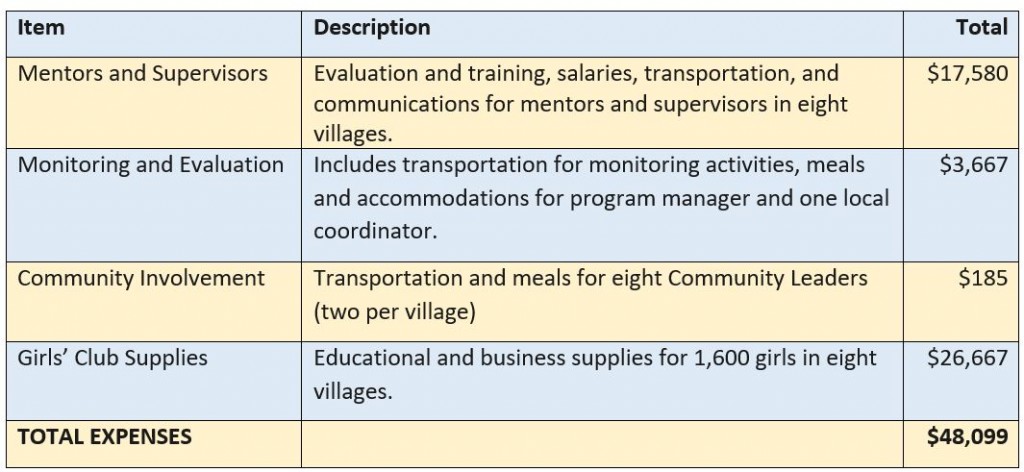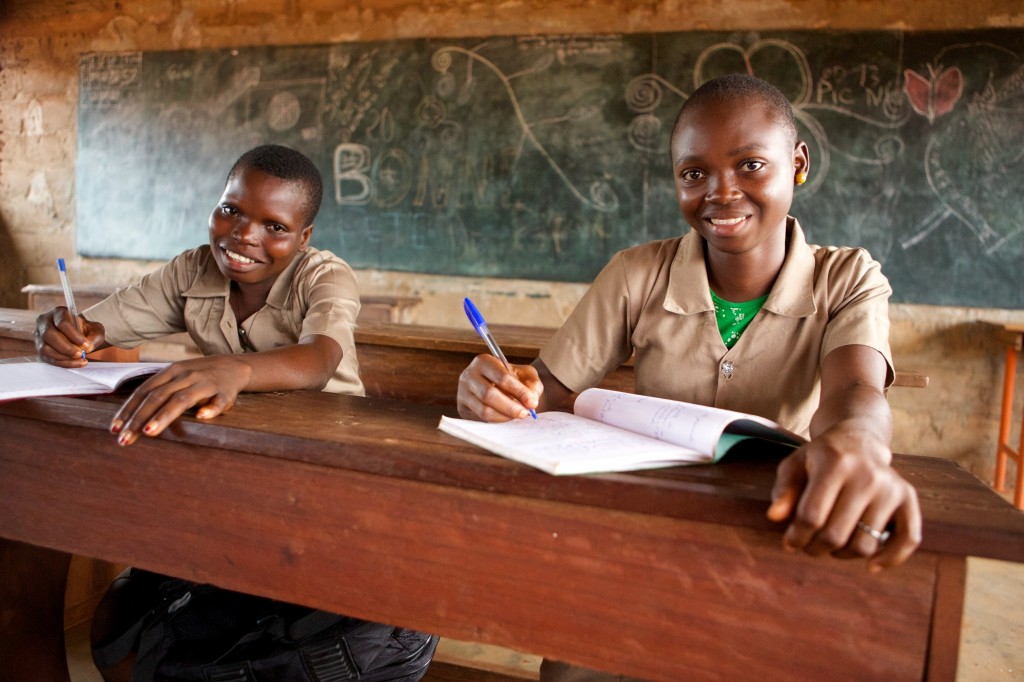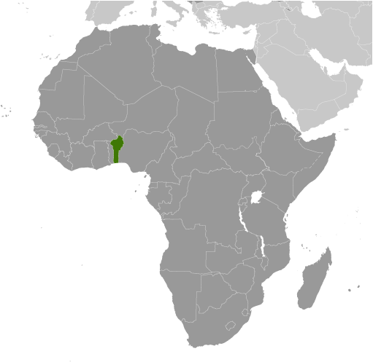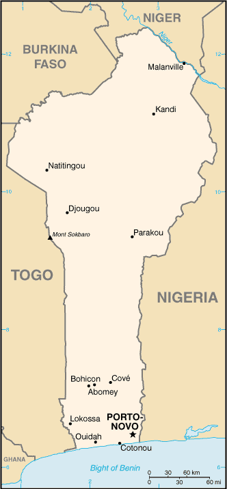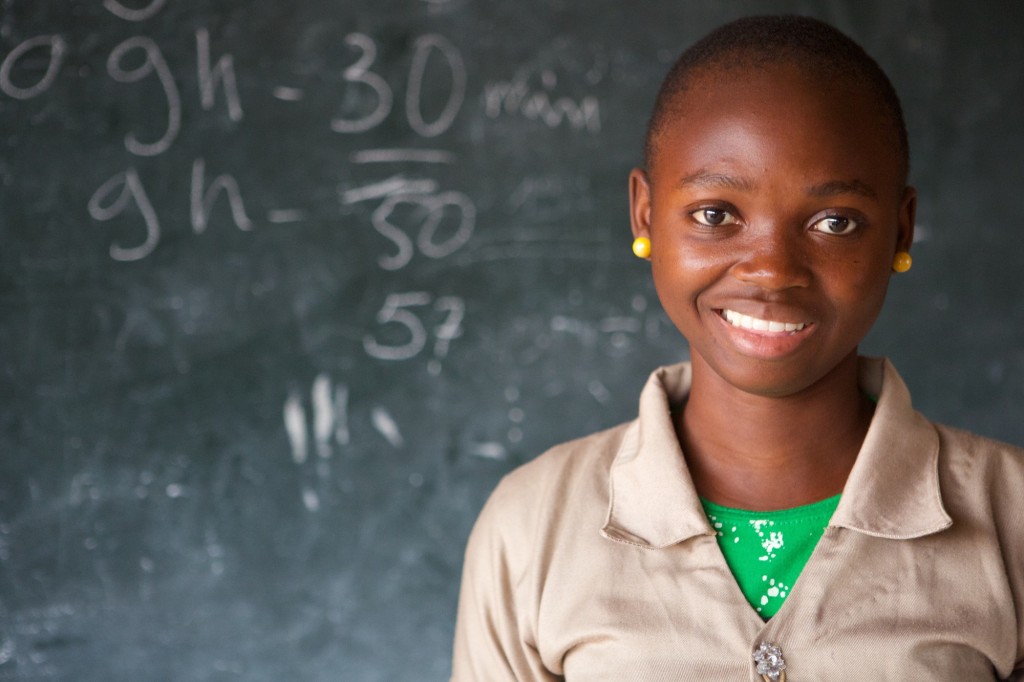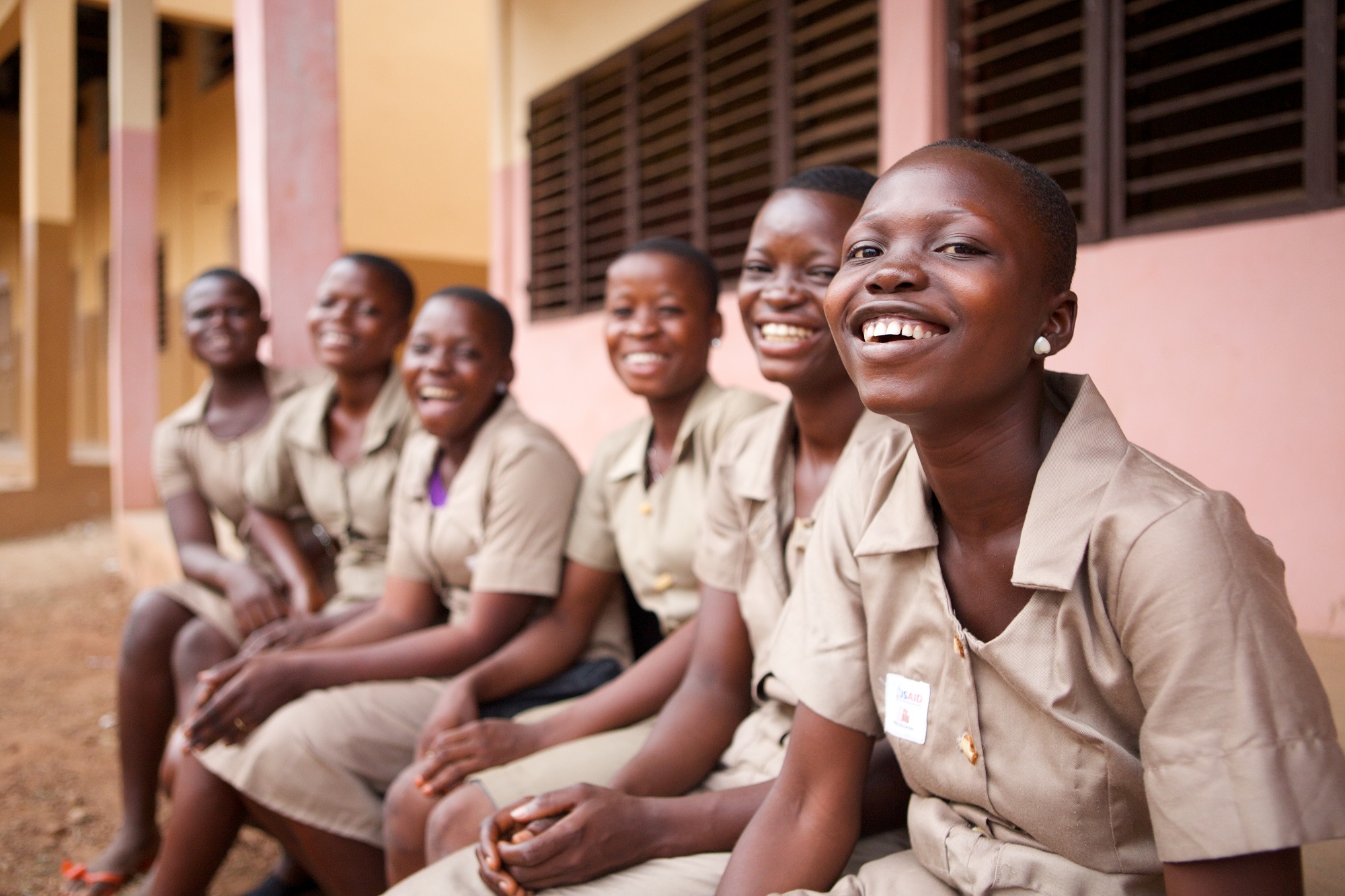
Mission
The Batonga Foundation equips marginalized girls and young women with the knowledge and skills to be agents of change in their communities and in their own lives.
Life Challenges of the Women Served
The Future Leaders Project focuses on Benin, West Africa. Benin is a country of 11 million people. The country is classified as low-income, with a per-capita gross national income of $890. While economic growth has been steady in recent years, 53 percent of the population lives on less than $2 per day.
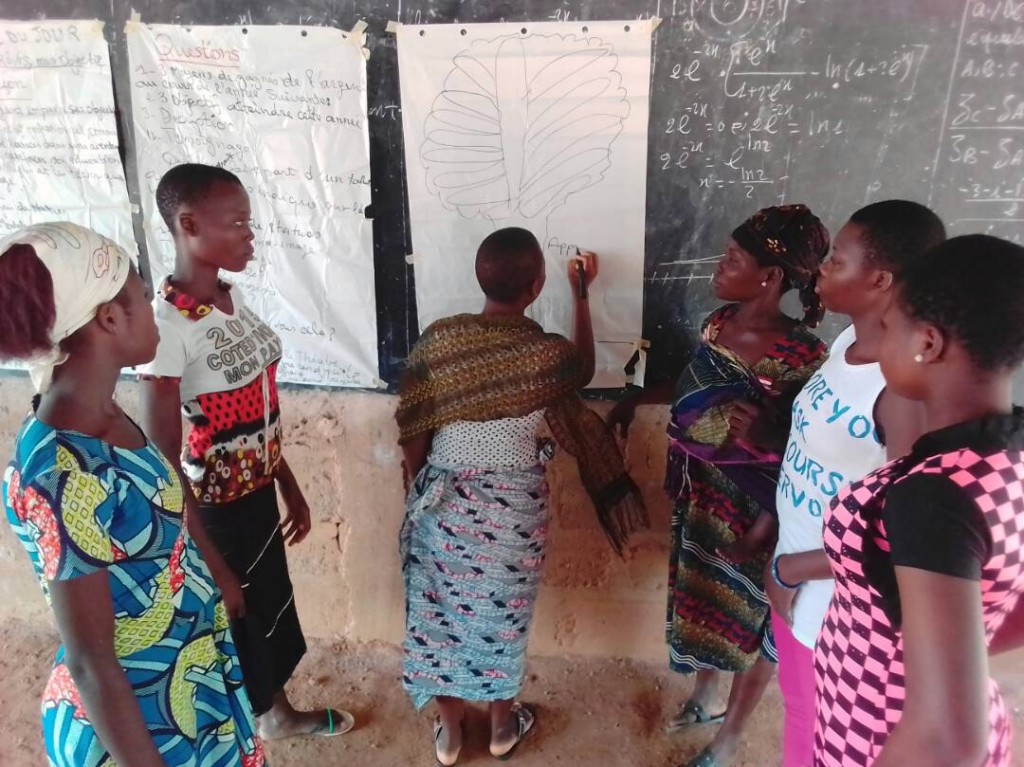 Girls, in particular, face barriers in attending school and completing their education:
Girls, in particular, face barriers in attending school and completing their education:
- Only 63 percent of girls complete primary school (compared to 78 percent of boys) and by upper secondary school, fewer than one in five girls are enrolled. In all, an estimated 200,000 girls ages 10-14 are not enrolled in school.
- More than one-third of girls are married before the age of 18. The adolescent fertility rate in Benin was 84.6 births for every 1,000 girls ages 15-19, and only 12 percent of married women ages 15-49 report using contraception, a decrease from 17 percent in 2002.
- The percentage of female-headed households in Benin is on the rise, standing at 23 percent in 2012, up from 17.5 percent in 1996.
The most challenging part of changing these numbers is understanding who these girls are, where they live, and what stands in their way. While investment in girls is increasing, a gap remains between what is promised and what is achieved. Unfortunately, many programs fail to reach the girls most in need because they are harder to locate and more difficult to engage. Girls – especially poor girls – are often cited as a key constituency for health and development initiatives. However, unless they are subject to specific recruitment efforts, they are likely to receive a disproportionately low, even negligible share of the benefits. While many organizations have focused on “girls’ education” in general, there is an ineffectiveness in development programs truly reaching their target participations. This gap exists because of a lack of sufficient information about the communities’ 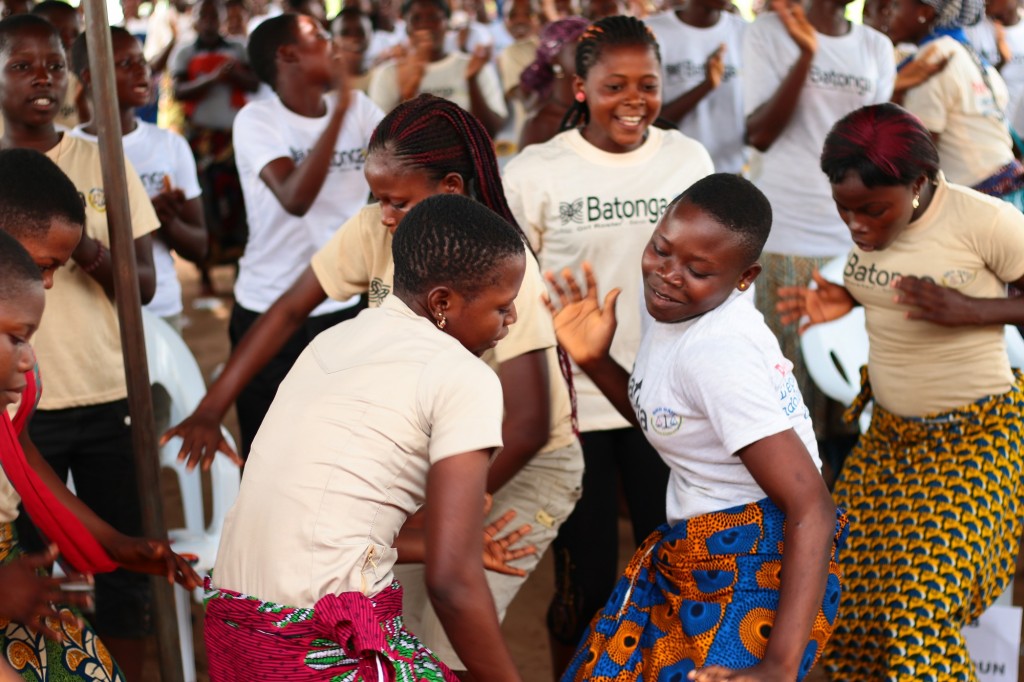 demographics, specifically the collection of granular data that identifies the most vulnerable girls in need of support and addresses their specific needs and asset deficits.
demographics, specifically the collection of granular data that identifies the most vulnerable girls in need of support and addresses their specific needs and asset deficits.
Often, girls living in the poorest areas of Benin struggle just to make ends meet. Hunger and hardship are frequently a daily reality and things like pursuing an education, a career or even a dream, seem impossible. Batonga aims to change this by offering girls a chance to connect to mentors and peers, receive social and financial education and access the tools they need to start a small business or re-enter the school system. Research has shown that females are powerful stewards of resources and that income under female control has far greater human capital investment value than the same resources under male control.
The Project
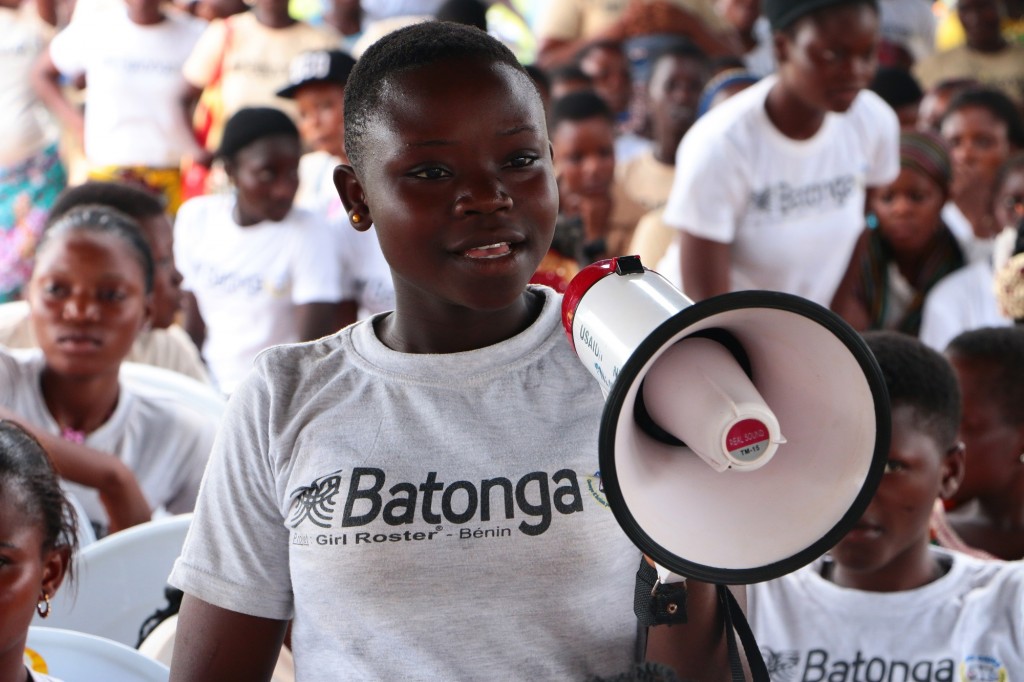 Batonga removes the obstacles that prevent or discourage girls and young women from attending school and earning a living. They do this by improving school infrastructure, driving enrollment, granting scholarships, providing access to mentors and Girls’ Clubs connected to income-generating activities, and promoting the value of educating daughters.
Batonga removes the obstacles that prevent or discourage girls and young women from attending school and earning a living. They do this by improving school infrastructure, driving enrollment, granting scholarships, providing access to mentors and Girls’ Clubs connected to income-generating activities, and promoting the value of educating daughters.
The primary goals of The Future Leaders Project are to:
- Maximize excluded and at-risk girls’ access and completion of secondary schooling
- Reduce instances of child marriage, HIV infection, child pregnancies and births
- Reduce isolation and marginalization of the poorest, most vulnerable girls
- Increase girls’ financial inclusion, youth learning, and fair share of available resources
The primary beneficiaries of The Future Leaders Project are 3,200 “off-track” (living in remote areas/not easily identifiable, typically left out of traditional education and development initiatives) girls, ages 15-24 living in the 16 target villages of the Zou and Collines regions of Benin. Specific attention will be paid to locating and recruiting the most off-track, including those out of school, living with one/neither parent and/or pregnant/with children.
To pinpoint the participating women and girls, Batonga utilizes the Girl Roster© tool, an innovative, cost-effective Android cell phone application designed by the Population Council, to map target villages, survey households, and select the adolescent girls and young women to participate in this project. This tool allows Batonga to break the target population into meaningful segments by age, schooling, and marital, childbearing, and living-arrangement status to clearly identify the most off-track girls. Batonga will train 60 field staff enumerators for the project, including surveyors, mentors, and supervisors. Initially, the project will create 64 Girls’ Clubs (segmented by age and other factors as appropriate) in the targeted villages. Twenty-four mentors, who will be managed by three Batonga team supervisors, will facilitate the Girls’ Clubs.
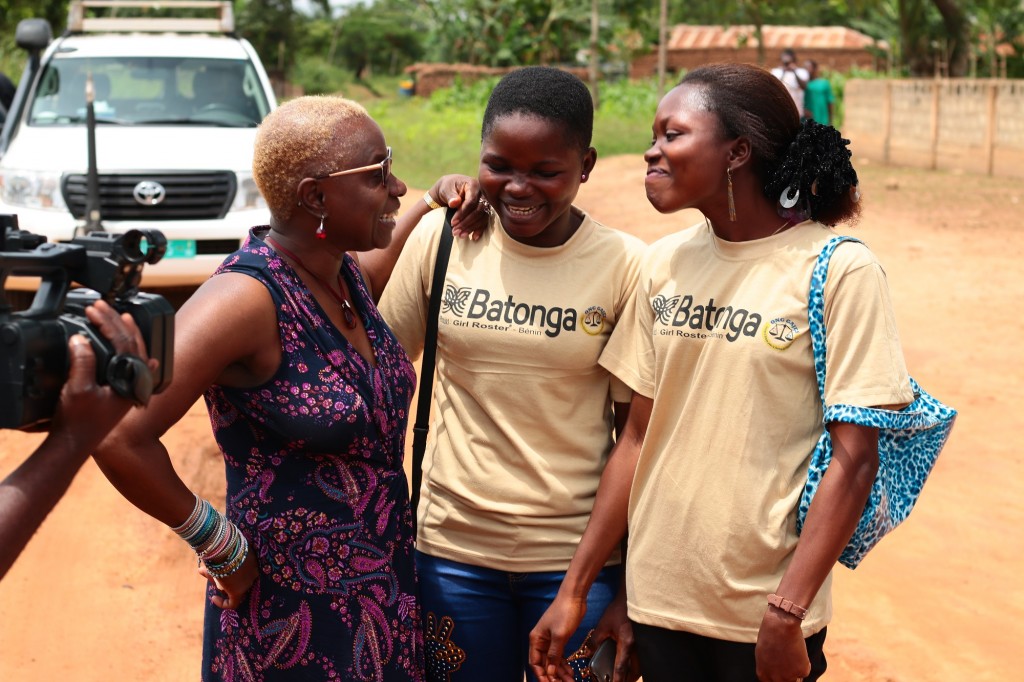 At the outset of the project, an “asset-building toolkit” will be utilized. This is an activity where the girls use a deck of cards to identify the tools and skills most important to them. This subsequently shapes the curriculum, making the girls drivers of their own education. The toolkit is a deck of 100 cards which helps girls determine the specific services, resources and/or skills they need to acquire from the Girls’ Clubs in order to enhance their livelihoods (such as how to open a savings account/create savings groups, a network of friends to call when in trouble, an ID card, the skills and confidence to create a budget and track income and spending, etc.). Girls will discuss the cards with mentors and work with them to select skills that are relevant to their needs. This asset-building approach will help girls take an active role in crafting achievable benchmarks by age and context.
At the outset of the project, an “asset-building toolkit” will be utilized. This is an activity where the girls use a deck of cards to identify the tools and skills most important to them. This subsequently shapes the curriculum, making the girls drivers of their own education. The toolkit is a deck of 100 cards which helps girls determine the specific services, resources and/or skills they need to acquire from the Girls’ Clubs in order to enhance their livelihoods (such as how to open a savings account/create savings groups, a network of friends to call when in trouble, an ID card, the skills and confidence to create a budget and track income and spending, etc.). Girls will discuss the cards with mentors and work with them to select skills that are relevant to their needs. This asset-building approach will help girls take an active role in crafting achievable benchmarks by age and context.
The Future Leaders Project will directly impact 3,200 women and girls. The indirect impact is estimated at 12,800. This number is reached by assuming that the average household in the target area is approximately five individuals, and that for every girl enrolled in a Girls’ Club, four family or community members in close proximity to the girls will be positively influenced by the resources of the Girls’ Club.
UN Sustainable Development Goals
![]()
![]()
![]()
![]()
Questions for Discussion
- How does this innovative use of low-cost technology help close the data gap for girls?
- What is the value of the asset-building toolkit?
- How do you think grassroots, community engagement impacts this project’s success?
How the Grant Will be Used
DFW’s grant of $48,099 will help fund staff, monitoring and evaluation, community involvement, and supplies for the Girls’ Clubs.
Why We Love This Project/Organization
We love this project because of its innovative methods to target and serve vulnerable and underserved adolescent girls. In addition, the Batonga Foundation works hard to involve the entire community and build capacity for long term sustainability of its programs.
Evidence of Success
Since its inception in 2006, Batonga has reached girls in five African countries, providing over 5,000 academic years of education. In addition, Batonga has supported communities across five countries with infrastructural developments and in-kind gifts. In Benin, 8,727 students, their families and community members now have access to water wells and latrines across seven schools. Over 200,000 male and female students in the poorest regions of Benin have received shoes to ease the long walk to school. Over 145 in-kind gifts of 45kg bags of rice have been made annually since 2007 to parents or guardians of students in Benin to offset the cost of sending their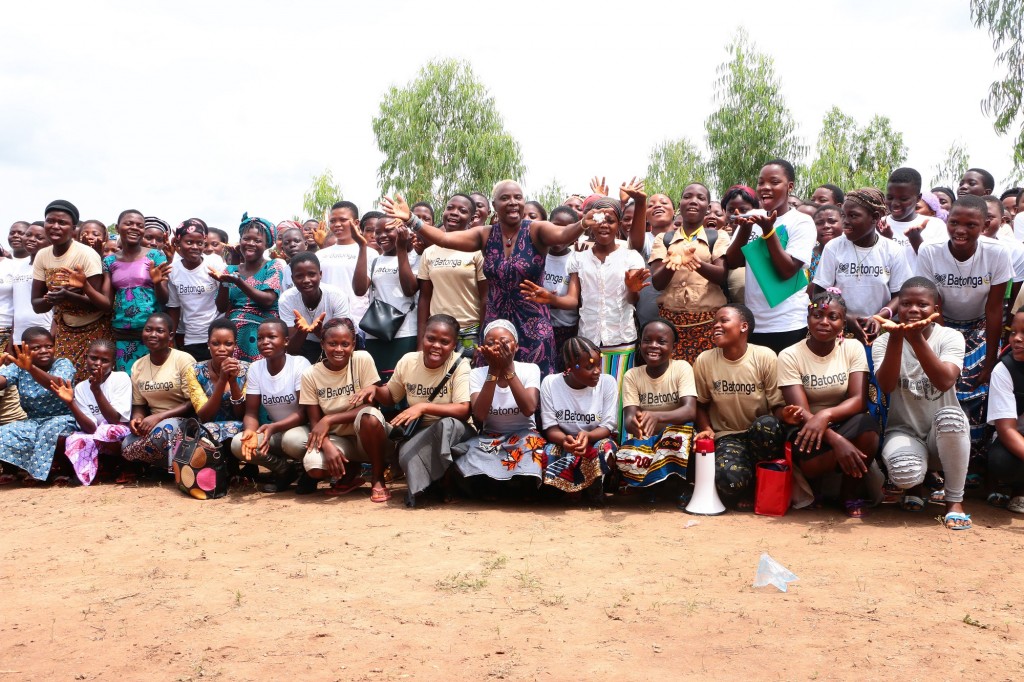 daughters to school. Over 10,000 students and their family members have access to books/library services in Ethiopia because of their work.
daughters to school. Over 10,000 students and their family members have access to books/library services in Ethiopia because of their work.
The Batonga Foundation was recognized in 2014 by GreatNonprofits as a Top-Rated Nonprofit. The Catalogue for Philanthropy also rated Batonga as “One of the Best” in 2010-2011 and again in 2014-2015.
Since launching the Future Leaders Project in fall 2016, the foundation has recruited 1,629 girls into clubs, achieved a 98 percent attendance rate in the Girls’ Clubs, and engaged 100 percent of girls in clubs in business skills development and income-generating activities.
Voices of the Girls
“Being a mentor to these girls has been such a good experience for me. I have grown and learned so much by teaching this curriculum and by serving as a leader and friend to these girls from my community. It has truly opened my mind.”
– Germaine Houenoumadin, Batonga Mentor
“I am frequent and on time to my club meetings because here, I am able to talk about things and get information that I cannot find at home. Here I can prepare for the future and become the person I want to be.”
– Girls’ Club Member, Savalou
“With Batonga’s guidance, I became determined to not marry at the first opportunity and drop out of school. In my village there are many girls who have dropped out because they became pregnant…if I am able to stay in school, it is thanks to the Batonga program, and I am grateful.”
– Silifa, Batonga Girls Club Member
“Participation in the clubs means that people look at us differently in the community. We are given more value.”
– Girls’ Club Member, Azonkangoudo
“I am so thankful that the Batonga Foundation brought this program to my village, connecting many girls my age who are facing similar challenges. I look forward to participating and learning new skills each week. The project has also given us the chance to support ourselves through starting small businesses. All of the girls in my club have learned how to produce liquid and solid soaps which we now sell. Our mentors have given us guidance and knowledge on budgeting and funds management. My participation in the program has allowed me to acquire so much knowledge. My life has changed. I have become much more disciplined and hopeful. The club’s activities help me to look beyond my worries and prepare for a better future. That is why I ask to do everything necessary so that these clubs never disappear. ”
– Eudoxie, Girls’ Club Member Bohicon, Benin
About the Organization
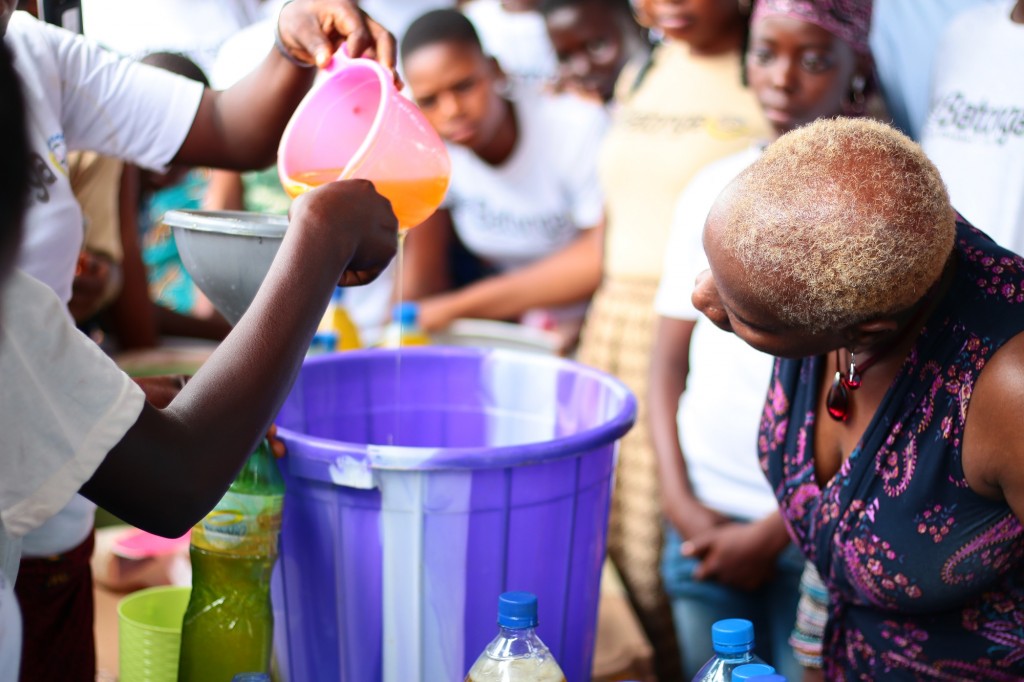 Grammy Award-winning singer and songwriter Angelique Kidjo grew up in Benin, West Africa, and was one of the few girls in her community to have the chance to pursue schooling at a time when education for girls was not socially acceptable in her native country. In defiant response to taunts by those who said girls did not belong in the classroom, she invented the word “batonga.” Later, it became a hit song for Angelique, whose lyrics address a young African girl, telling her “you are a princess, and you can do what you please regardless of what anyone tells you.” (The official music video for “Batonga” is online.)
Grammy Award-winning singer and songwriter Angelique Kidjo grew up in Benin, West Africa, and was one of the few girls in her community to have the chance to pursue schooling at a time when education for girls was not socially acceptable in her native country. In defiant response to taunts by those who said girls did not belong in the classroom, she invented the word “batonga.” Later, it became a hit song for Angelique, whose lyrics address a young African girl, telling her “you are a princess, and you can do what you please regardless of what anyone tells you.” (The official music video for “Batonga” is online.)
In 2006, Kidjo founded the Batonga Foundation to empower and educate the most excluded adolescent girls in sub-Saharan Africa, those “beyond the paved road.” Beginning in her home country of Benin, The Batonga Foundation has since supported girls and young women in five countries in Sub-Saharan Africa with the support and tools they need to complete their formal schooling or start their own businesses.
Kidjo was the first African woman to be appointed as an International Goodwill Ambassador at UNICEF, and the first woman to be listed among “The 40 Most Powerful Celebrities in Africa” by Forbes. Batonga’s goal is “transforming Africa, one girl at a time.”
Where They Work
Benin is in Western Africa, between Nigeria and Togo. Its population is more than 11 million and it encompasses an area slightly smaller than the state of Pennsylvania. Despite moderate GDP growth of 4 – 5 percent annually over the past two decades, poverty remains widespread and often on the rise in Benin. About 40 percent of the population lives below the poverty line. Female-headed households experience lower levels of poverty (28 percent compared to 38 percent for male-headed households), but women remain more vulnerable and continue to suffer from a lack of economic opportunities.
 Due to economic issues, many parents resort to sending their children to work as domestic servants, or in mines, quarries or agriculture. Poverty, unemployment, increased living costs and dwindling resources spur many to migrate. An estimated 4.4 million, more than 40 percent of Beninese, have migrated.
Due to economic issues, many parents resort to sending their children to work as domestic servants, or in mines, quarries or agriculture. Poverty, unemployment, increased living costs and dwindling resources spur many to migrate. An estimated 4.4 million, more than 40 percent of Beninese, have migrated.
The median age in Benin is 18.2 years, and its birth rate is 35 births/1,000 population (2017 est.). Mother’s mean age at first birth is 20.3 years. Infant mortality is 52.8 deaths/1,000 live births. The fertility rate is 4.77 children born/woman (2017 est.). The literacy rate is 38.4 percent for the total population, with a male literacy rate of 49.9 percent and a female literacy rate of 27.3 percent. One percent of adults, approximately 67,000 people, live with HIV/AIDS.
A Closer Look at the Value of Data Driven Education Efforts
Approximately 130 million girls around the world are not in school because they were not given the chance. In Benin, approximately half of 15-24-year-olds have not completed primary education. Three out of four girls in the country never make it to middle school, and over one-third are married before the age of 18. Three principal causes create obstacles related to girls’ education:
- Economic and material (many poor families cannot afford school expenses)
- Sociocultural beliefs and practices (it is not felt necessary for girls to be educated in school)
- Limitations within the education system itself (lack of support of infrastructure, equipment, materials, shortage of teachers in rural areas, etc.)
Different reforms have been made in recent years to reduce disparities between girls’ and boys’ access to education. Gender stereotypes are being progressively eliminated from textbooks and other teaching learning materials. Pre-service and in-service teacher education efforts seek to include measures to introduce the concept of gender equity. But despite these efforts, norms and beliefs in Beninois society continue to be strongly influenced by the cultural view that women are subordinate to men.
Those most affected by this problem include adolescent girls living “beyond the paved road,” (a term the Batonga Foundation uses for its target demographic), in poor communities that have been excluded from educational opportunities, and the communities themselves which have been excluded from development initiatives. This includes girls who have been forced to drop out of school, are isolated, orphaned by AIDS, have disabilities, and are adolescent wives and mothers.
Finding these girls is critical to the success of the Batonga Foundation’s efforts. With the data-driven approach of the Girl Roster app, Batonga can ensure they are reaching and benefitting the most at-risk girls and investing charitable dollars more efficiently. Using Girl Roster and its methodology, the Batonga Foundation increases girls’ access to vital resources, facilities, and services.
Read more in a New York Times advertorial by the Bill and Melinda Gates Foundation.
Source Materials

